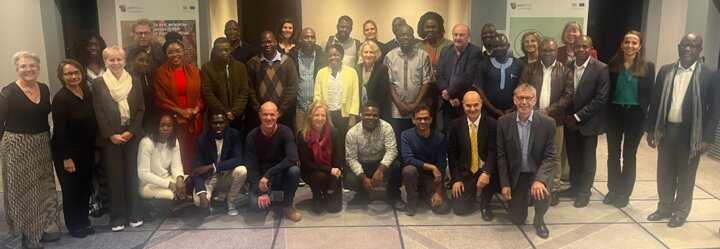SwissCore: PAMAfrica’s role in the global fight against malaria

PAMAfrica, a global MMV-led research consortium, is developing treatments for babies under 5kg, severe malaria and drug-resistant uncomplicated malaria
The World Health Organization (WHO) reported an estimated 249 million malaria cases and 608’000 malaria-related deaths across 85 countries in 2022, with Africa bearing a disproportionate share of the burden, accounting for 94% of all cases and 95% of deaths globally. Children, infants, and pregnant women are most at risk of severe infection, with children under five years old accounting for 78% of all malaria deaths in Africa in 2022. Malaria is a vector-borne disease, which means it is spread by mosquito bites. The most common symptoms are fever, headache, and chills, but severe symptoms can include extreme fatigue, difficult breathing and multiple convulsions.
With early diagnosis and adequate treatment, medicines can reduce the impact of malaria, prevent death, and help drive progress towards malaria elimination and eradication. However, many challenges remain in the fight against the disease: medicines are not accessible to everyone and vulnerable groups like infants and women of child-bearing age lack adequate medicines tailored to their needs, due in part to their exclusion in clinical trials. With partial resistance to artemisinin derivatives, the mainstays of malaria treatment, observed in South-East Asia and Africa, researchers need to prepare the next generation of medicines to kill the parasite. This is where Medicines for Malaria Venture (MMV) comes in: the Geneva-based not-for-profit organisation works with around 150 global partners to discover, develop and deliver new effective and affordable antimalarial drugs. MMV is involved in the entire drug development pipeline, from early discovery to post-approval studies, and seeks to ensure that all populations benefit from its medicines. To date, their co-developed medicines have saved the lives of 15.4 million people.
In 2018, the European and Developing Countries Clinical Trials Partnership (EDCTP), named EDCTP2 for the 2014-2024 period, launched an innovative call for proposals asking for an “attractive research and development portfolio including one or more clinical trials relevant for target populations (pregnant women, infants and children).” This call aligned with MMV’s priorities. Inspired and convinced it could propose a winning portfolio, MMV contacted partners in Africa and Europe, as the actors in both regions share the goal of eradicating malaria, and could share knowledge, learning and understanding to achieve this goal. After bringing motivated partners together from pharmaceutical companies, European universities, and African research institutes, they formed the PAMAfrica consortium. Once aligned on the local realities endemic countries face and ensuring a collective approach to the planned clinical research, consortium partners were able to understand each other’s expectations, workflows and areas of expertise, effectively bringing everyone together as a high-functioning team to meet the EDCTP2 call programme criteria.
Please visit the SwissCore website to read the entire article.